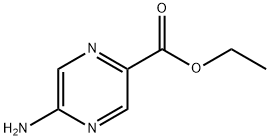When we are already full, why does our body seem to make an exception for desserts? Does the "dessert stomach" phenomenon have a connection with how the brain anticipates future energy needs? For example, could the brain, through its sugar - control mechanisms, recognize that the simple sugars in desserts can be quickly absorbed and stored as energy? Also, are there specific neural pathways involved in this unique relationship between the "dessert stomach" and the brain's sugar - control system?
Why do we still have an appetite for dessert when we are full? What kind of relationship exists between the "dessert stomach" and the brain's sugar control?
Related Products More >
-
- 90989-93-8
- equest For Quotation
- 25kg drum
-
- 90-05-1
- equest For Quotation
-
- 607-80-7
- equest For Quotation
-
- 4642-95-9
- equest For Quotation
-
- 4330-21-6
- equest For Quotation
- 25kg/drum
-
- 36687-82-8
- equest For Quotation
-
- 271241-14-6
- equest For Quotation
-
- 17606-31-4
- equest For Quotation



 沪ICP备2021018848号-5
沪ICP备2021018848号-5

This "sugar addiction" mechanism is only activated when consuming sugar, and has no response to ordinary food or high-fat food. When scientists blocked this neural pathway through experiments, the mice no longer showed interest in extra sugar.
Interestingly, this mechanism is even activated before the animal actually eats the sugar. That is to say, just perceiving the presence of sugar is enough to trigger the brain's craving for sweets, and the "dessert stomach" will release β-endorphins, and consuming extra sugar will further enhance this release.
To verify whether this discovery applies to humans, scientists conducted brain scan experiments on volunteers. The results showed that when volunteers ingested a sugar solution through a straw, the same area in the brain as in mice was activated. This area is not only related to the feeling of fullness, but also rich in β-endorphins. So, the "dessert stomach" is related to the special function of these POMC neurons in the brain's sugar control mechanism, which makes us have an appetite for desserts even when full through the release of β-endorphins and activation of the reward system.